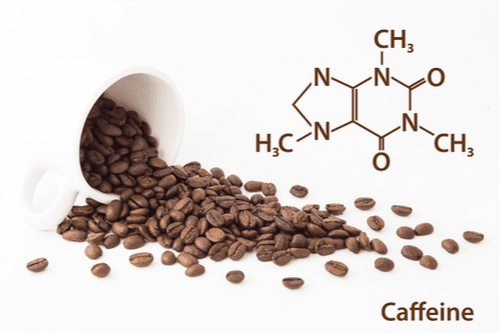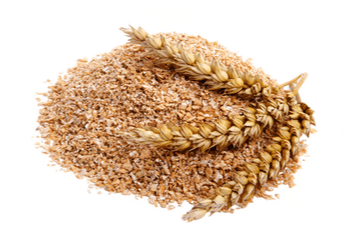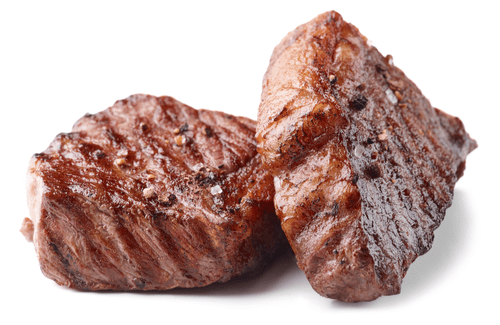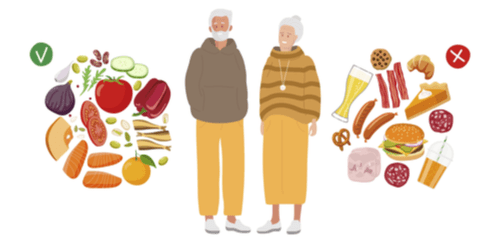Jack Spratt could eat no fat; his wife could eat no lean. So, between the two of them, they licked their platter clean…but how healthy was their diet?
This old nursery rhyme tells how a couple managed not to waste any food, but how was their bone health with this diet?
Bone density is an important factor that older folks, like the Sprats, need to be aware of. Scientists have written about foods that eat away at bones. We’d like to make you aware of these foods.
Today’s public seems to know that vitamin D and calcium support bone health. But few know the foods that have the opposite effect.
According to the National Osteoporosis Foundation, 54 million Americans suffer from poor bone density. As we age our bones lose calcium and amino acids that provide strength and density to our skeletal system.
With input from experts, we’ve put together a list of foods to avoid or reduce consumption to help with bone health.
Foods to Avoid or Limit When You Have Osteoporosis

1. Carbonated Drinks
All soft drinks, including diet, contain phosphoric acid, which causes an increase in the blood’s acidity levels leading to bone weakening over time because your body is pulling calcium from your bones in order to bring acidity levels to normal. Also, soft drinks don’t contain any calcium, but they do increase calcium excretion in your urine.
Bottom line – drink water.
2. Table Salt

Eating large amounts of table salt or high-sodium foods (including snacks) encourages the excretion of calcium from the body. Americans consume much more table salt than they should. Salt should be limited to 1 teaspoon per day. A study published in the Osteoporosis International journal found that menopausal women who consumed salty foods were more prone to osteoporosis.
Bottom line – nix the table salt and potato chips.

3. Caffeine
If you are drinking in excess of three cups of caffeinated coffee or tea, you might be decreasing your body’s absorption of calcium which contributes to bone loss. The equation cited by experts is that for every 100 milligrams of caffeine that is consumed, we lose up to 6 milligrams of calcium. A 16-ounce cup of coffee contains 320 milligrams.
Bottom line – drink decaf coffee and herbal teas.
4. Wheat Bran

When you hear wheat bran, I’m sure that you, like me, think of extremely nutritious food that’s an excellent source of protein, fiber, and antioxidants. But 100% wheat bran can decrease the absorption of calcium that you have ingested from milk when consumed together (i.e., wheat bran cereal and milk).
Bottom line – Switch from bran products to sprouted grain products.

5. Red Meat
Nobody will argue with the fact that protein is essential for strength and overall health. In the US, animal meat is the most common source of protein. But meat protein contains great amounts of sulfur-containing amino acids. In response to this, the body takes calcium from the bones and releases it into the bloodstream.
Bottom line – substitute one portion of red meat for dairy, nut, or legume-based protein.
6. Alcohol

Drinking an excessive amount of alcohol causes bone loss. But the National Osteoporosis Foundation reported that a moderate amount of wine and beer is related to increased bone density.
Bottom line – Drink only beer or wine and do that in moderation.
Reverse the Adverse Effects to Improve Bone Health
The good news is the effects of the foods and drinks listed above can be reversed.
Researchers know that collagen protein provides structural support to muscles, joints, and bones. Recently there is some evidence that by adding collagen to the diet you could prevent the deterioration of bone density.
We, at Kabb Law (216-991-5222), want all of our clients and their families to remain healthy with strong bones. We hope this blog will get you started on your road to health.

